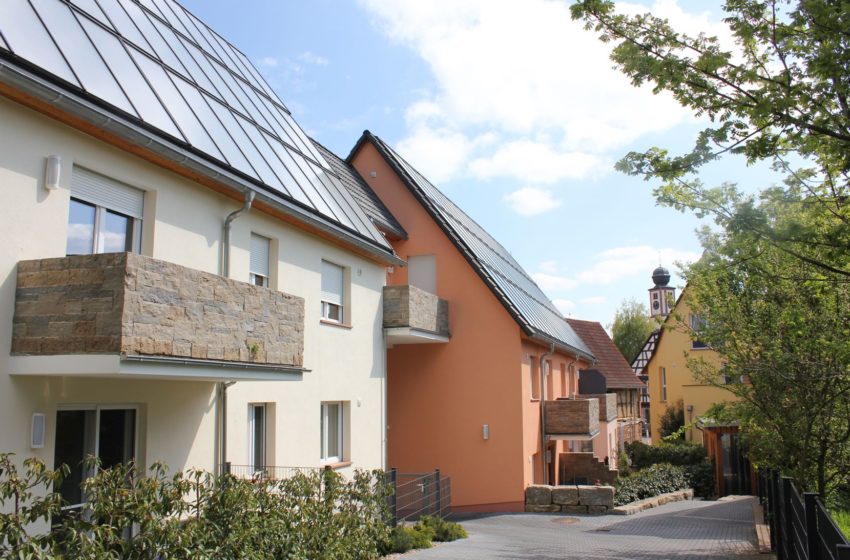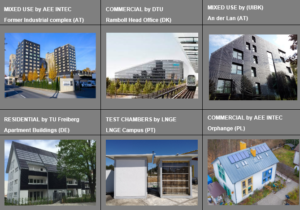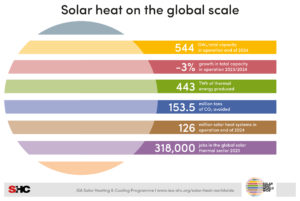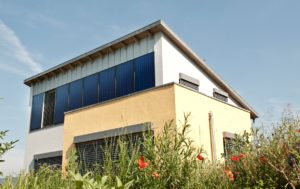Solar Energy Buildings to make cities fit for the future
February 14, 2020
Buildings account for around 40 % of the world’s primary energy consumption. Hence, they are the number one cause of resource consumption on earth. Because not every urban neighbourhood all over the world can be connected to district heating, local governments and building owners may need to consider using decentralised systems to decarbonise their building stock. Developing ecologically and economically feasible concepts is the aim of Solar Energy Buildings, a new research initiative set up by the IEA Solar Heating and Cooling Programme (IEA SHC). Experts from the worlds of business and research are invited to attend its first definition meeting, which will be held from 10 am to 4 pm on 25 March in Stuttgart, Germany.
Photo: Sonnenhaus-Institut
“We will investigate solutions that supply energy to households and electric vehicles, with a focus on options that can meet at least 85 % of heat demand, 100 % of cooling demand and 60 % of electricity needs in multi-storey buildings in central Europe,” explained Dr Harald Drück, co-coordinator of the new initiative and organiser of its first definition meeting.
The workshop will start off with attendees giving short presentations to describe their research work on Solar Energy Buildings, as well as their approaches and services. In the afternoon, the participants will discuss the structure and objectives of the new initiative. “We are inviting all stakeholders with expertise in solar thermal, PV, heat pumps or energy storage, or with expert knowledge in a broader field, such as HVAC, energy grids and control strategies, to attend our meeting,” said Drück. Should you have questions or want to register for the workshop, you can send an email to Claudia Haaf (see contact information at the end of this article).

Coordinate the Solar Energy Buildings research initiative: Harald Drück (left), Reseach coordinator and Head of ”Smart City concepts” at the Institute of Building Energetics, Thermotechnology and Energy Storage (IGTE) at the University of Stuttgart, Germany, and Christian Fink, Head of Thermal Energy Technologies and Hybrid Solutions at AEE INTEC – Institute for Sustainable Technologies based in Austria.
Photos: IGTE / AEE INTEC
The Solar Energy Buildings research initiative will be ready in about a year and will run for a total of three years. Its members, who are mostly also working on national research projects in related areas, will agree on a joint workplan and will meet twice annually to discuss progress of the work.
You can register for the workshop or receive more information about it by contacting Claudia Haaf at claudia.haaf@igte.uni‐stuttgart.de
Organisations mentioned in this article:
https://www.igte.uni-stuttgart.de/ (in German)


